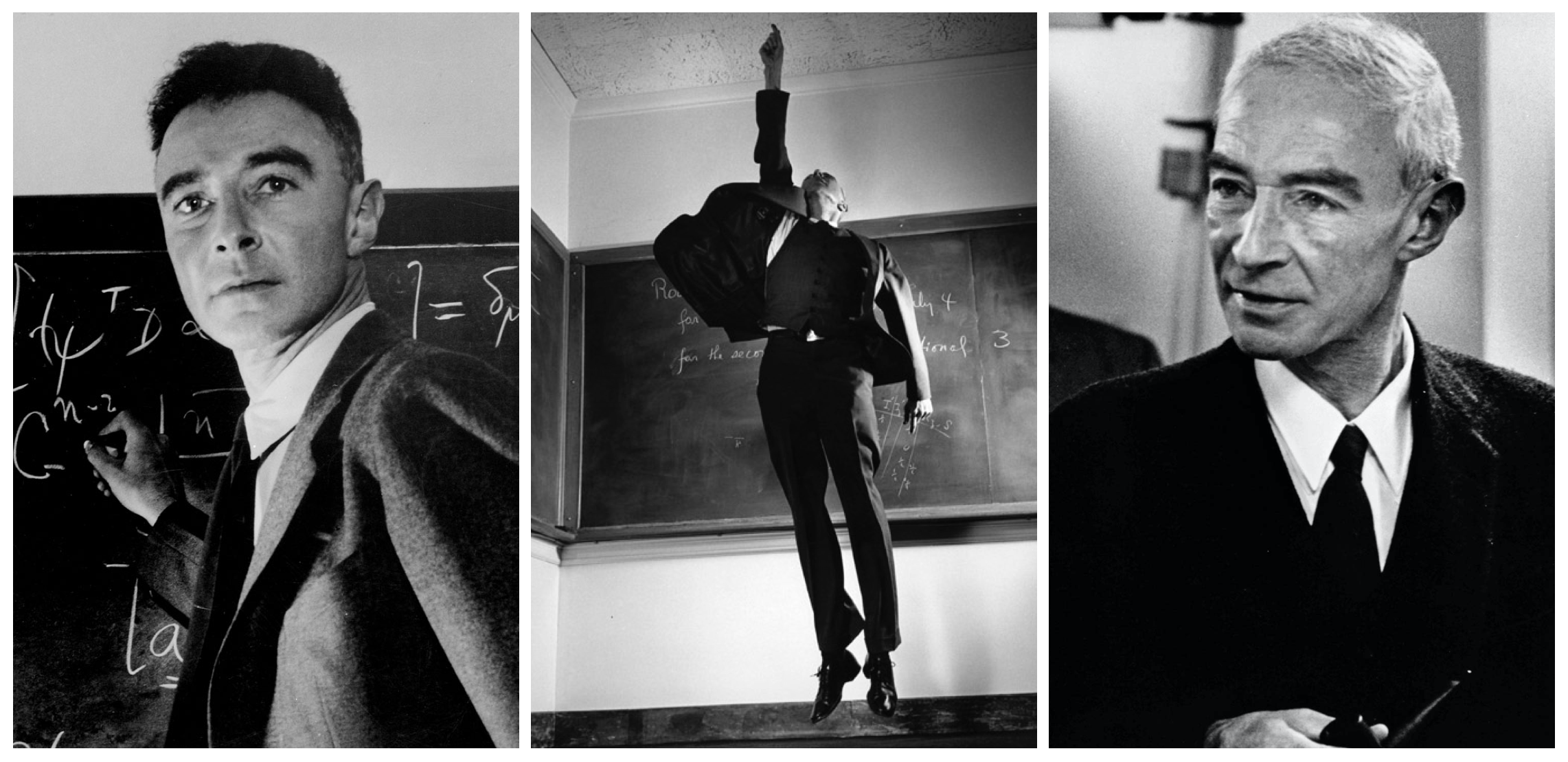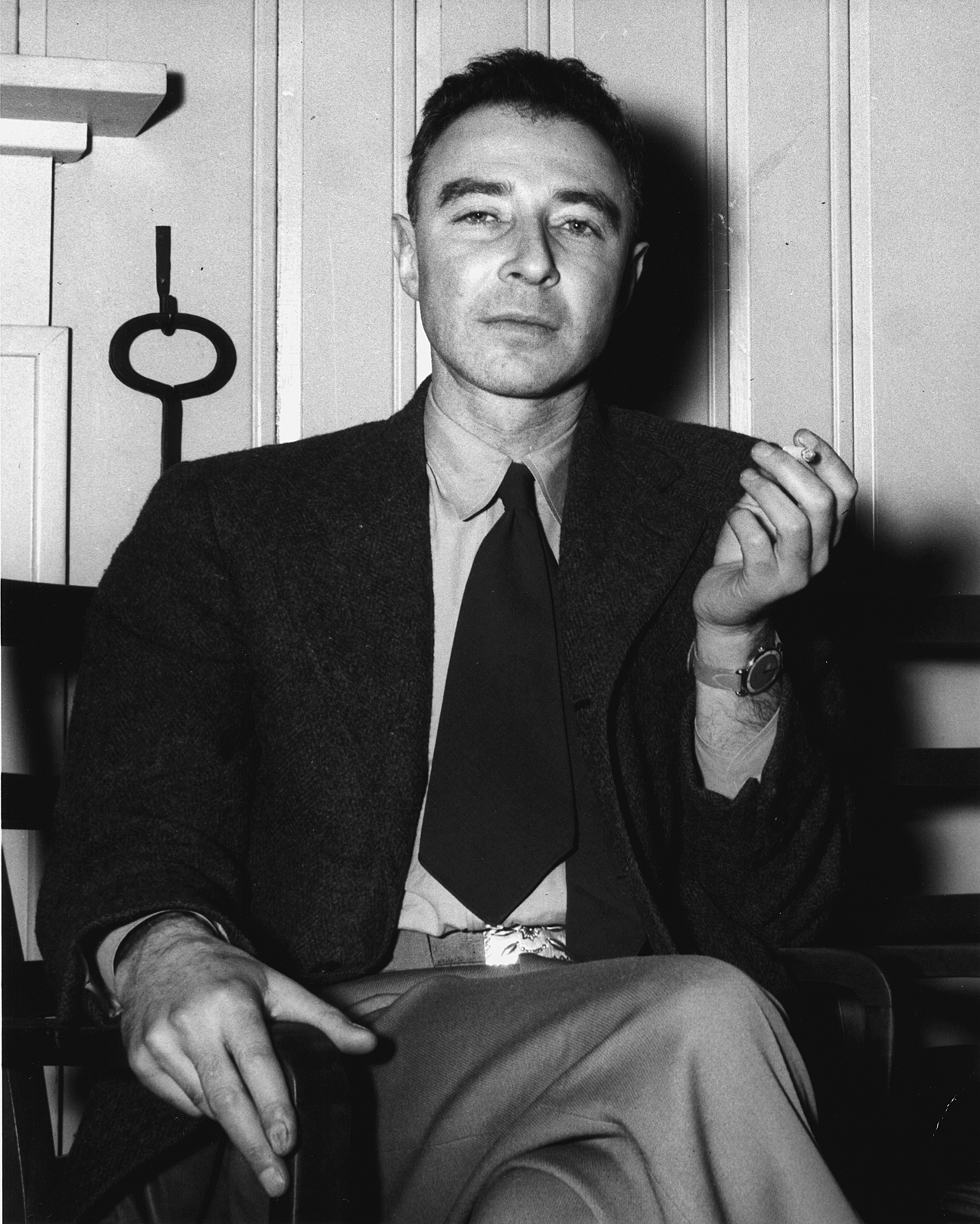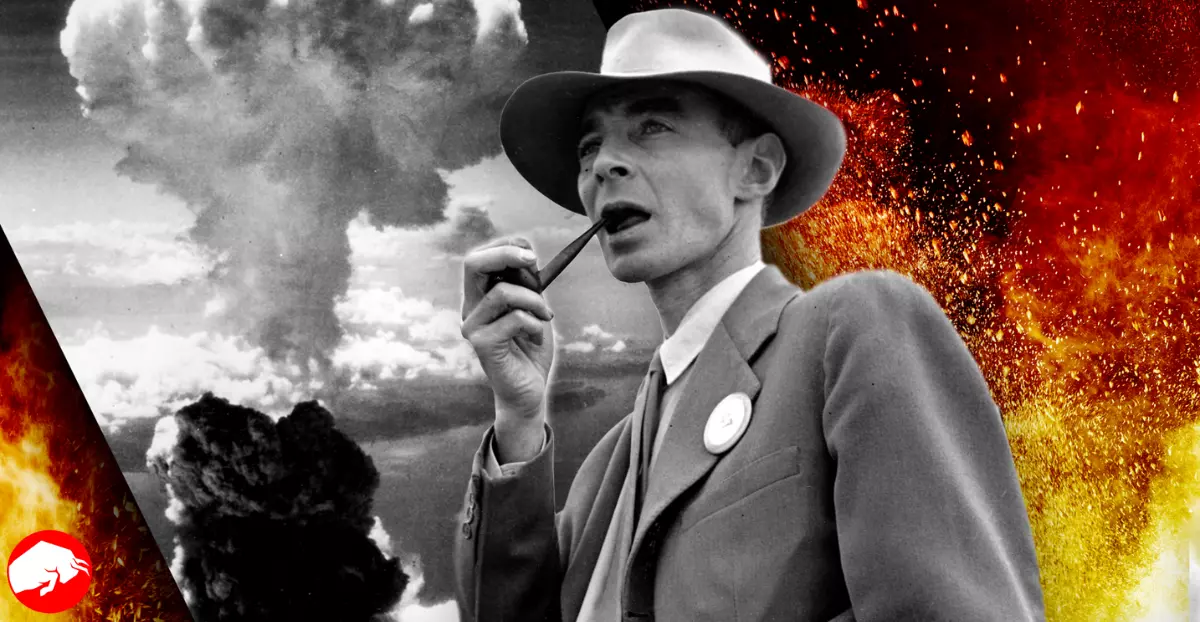From Celebrating Destruction to Carrying the Burden of Guilt
J. Robert Oppenheimer, the illustrious theoretical physicist whose name has become synonymous with the atomic age, is at the heart of a gripping narrative unfurled in Christopher Nolan’s newest cinematic endeavor. A complex figure who navigated the murky ethical waters surrounding the dawning of nuclear power, Oppenheimer’s narrative is a rich tapestry of success, regret, and redemption.

His tale is intertwined with one of humanity’s most groundbreaking yet devastating scientific accomplishments, forever connecting his name to the horrific atomic bombings of Hiroshima and Nagasaki in the searing summer of 1945.
In the immediate aftermath of these bombings, Oppenheimer’s initial emotional response was markedly different from what one might expect. As unveiled by his dedicated biographers Kai Bird and Martin J Sherwin, Oppenheimer’s initial response was not remorse but celebration.
He relished realizing a scientific achievement that had drastically tipped the scales of the ongoing war. So potent was his initial enthusiasm that, as recorded in a 1995 report published in The Atlantic, Oppenheimer expressed regret not for the devastation the bombs had caused but for their tardy completion that made their use against Germany impossible.
Moreover, Oppenheimer was more than just a detached scientific observer in deploying these destructive forces. He transitioned from a laboratory physicist to a strategic advisor, extending his expertise to guide the military in applying his deadly creation. His meticulously detailed and carefully articulated advice encompassed everything from the ideal weather conditions for an atomic attack to the exact altitude at which to detonate the bomb for maximum impact.
Through these actions, Oppenheimer unwittingly painted a vivid picture of his unswerving dedication to the potency of his creation, underlining the destructive capacity of the atomic bomb, the very object of his scientific triumph and a source of his impending moral turmoil.
A Change of Heart and a Presidential Confrontation
But like a quickly extinguished flame, Oppenheimer’s fervor rapidly metamorphosed into profound remorse that consumed him. Merely a month following the shattering bombings, the scientist traversed the hallowed halls of the White House, his steps heavy with the weight of guilt. Oppenheimer sought an audience with President Harry S Truman, who had given the ultimate order to unleash atomic terror on Japan.
During this crucial encounter, Oppenheimer candidly admitted his deep-seated guilt to the President, a man often considered the world’s most potent.
The physicist reportedly confessed, “Mr. President, I have blood on my hands.”
He hoped this confession would serve as a cathartic release, allowing him to begin grappling with the consequences of his role in this unprecedented episode of human history.
Yet, Truman’s response was not the empathetic understanding Oppenheimer might have sought.
The President retorted sharply, “The blood was on my hands, let me worry about that.”
His curt dismissal of Oppenheimer’s guilt signified a stark disconnect between the world of political power and scientific discovery, revealing a significant schism in their perspectives on the ethical implications of the bombings.
This episode, culminating in Oppenheimer’s abrupt dismissal from the Oval Office, left a deep impression on the tormented scientist. It was a jarring reminder that his creation, born in the peaceful confines of a research laboratory, had ramifications far beyond what he had ever imagined. The dismissal by the President marked a pivotal turning point, prompting a seismic shift in Oppenheimer’s worldview.
Once a triumphant scientist basking in the glory of his creation, Oppenheimer soon transformed into a fervent advocate for regulating nuclear power. His remorse fueled his determination to ensure that the power he had helped unleash would not wreak such devastation again.
This transformation served as the first step on Oppenheimer’s journey of redemption, a path that would remain his focus for the rest of his life.
Comparisons to Ancient Lore: The Bhagavad Gita
The poignant meeting with President Truman was not the only event that brought forth compelling narrative threads in Oppenheimer’s life. His story, steeped in moral problems and existential questioning, resonated strongly with ancient narratives far beyond nuclear physics.

Numerous biographers, scholars, and cultural commentators have explored the intriguing parallels between Oppenheimer’s struggle and the profound discourse in the pages of the Bhagavad Gita, a revered Hindu scripture dating back thousands of years.
This engaging comparison takes center stage in a thought-provoking paper, “The Gita of J Robert Oppenheimer,” authored by the esteemed James A Hijiya. The author asserts that the dialogue between Krishna, the divine guide, and Arjuna, the troubled warrior, mirrors Oppenheimer’s evolving understanding of his role in the nuclear era.
In the epic text, Krishna imparts his wisdom to the hesitating Arjuna on the precipice of a great battle. He instructs Arjuna that as a warrior, he must fight, emphasizing that the decision of life and death rests in Krishna’s divine hands, not Arjuna’s mortal ones. Krishna further exhorts Arjuna not to dread the consequences of his actions but to remain devoted and uphold his duties, thus assuaging his fears and uncertainties.
These profound teachings echo Oppenheimer’s introspective realization that unfolded in the wake of the atomic bombings.
He voiced his understanding, stating, “If you are a scientist… you cannot stop such a thing… If you are a scientist you believe… that it is good to turn over to mankind at large the greatest possible power to control the world and to deal with it according to its lights and values.”
Much like Krishna’s guidance to Arjuna, Oppenheimer was grappling with the notion that scientists, much like warriors, have duties to perform without shying away from the resulting repercussions. His realizations reflected a philosophical acceptance of his role and an understanding of the necessity and inevitability of scientific progress, regardless of its potential for devastation.
The intriguing comparison with the Bhagavad Gita offered an ancient, spiritual dimension to Oppenheimer’s modern scientific dilemma.
The Aftermath and Legacy
After his confrontation with Truman, Oppenheimer dedicated his life to advocating for regulating nuclear power. Despite the initial celebration and subsequent regret, he appeared to have come to terms with his role in developing and deploying the atomic bomb.
He resigned himself to the belief that, as a scientist, he was responsible for providing humanity with the power to shape its destiny, for better or worse.

The narrative of J. Robert Oppenheimer serves as a reminder of the immense ethical responsibility that accompanies scientific progress. His legacy, from his pivotal role in one of the darkest chapters of human history to his advocacy for the responsible use of nuclear power, is now being brought to the silver screen in Christopher Nolan’s latest film.
Cillian Murphy portrays Oppenheimer, with Oscar-winner Gary Oldman taking on the role of Truman. The film is set to hit theatres this Friday, offering a fresh perspective on a historical figure who embodied the intersection of science, ethics, and the human condition.
Source: IndianExpress









